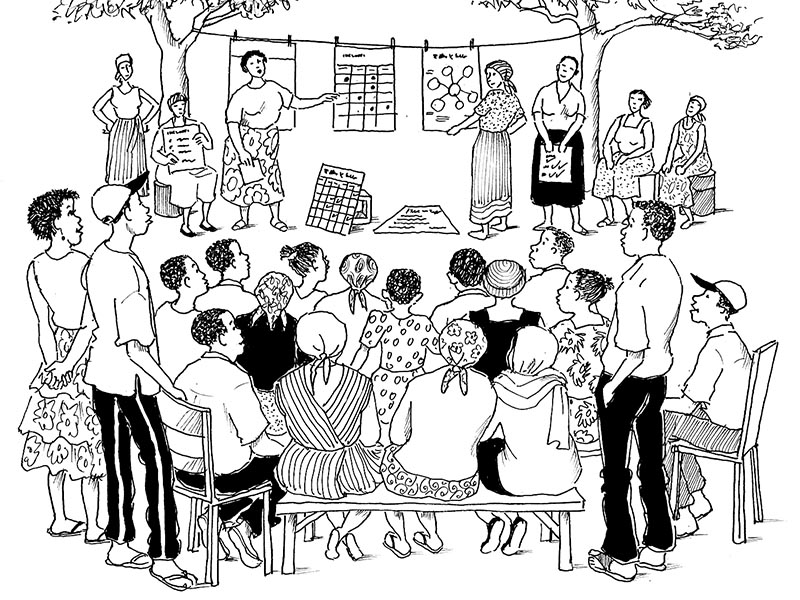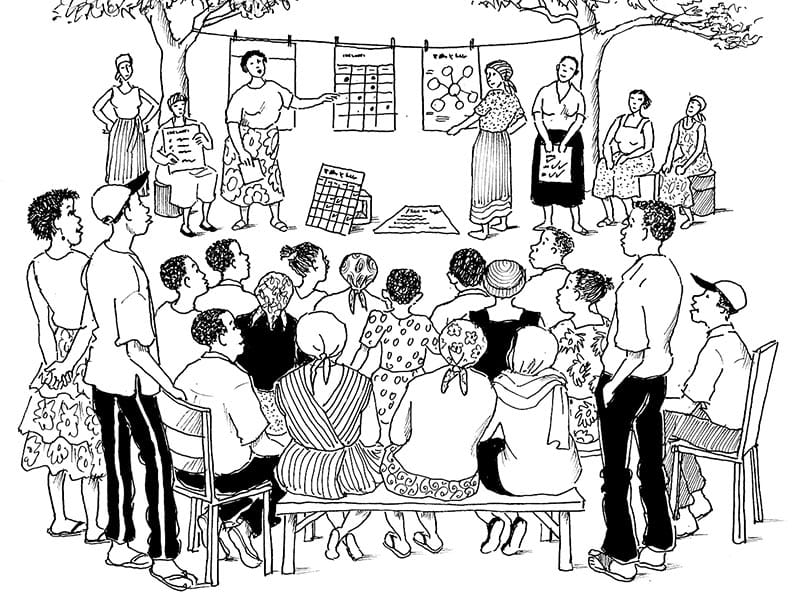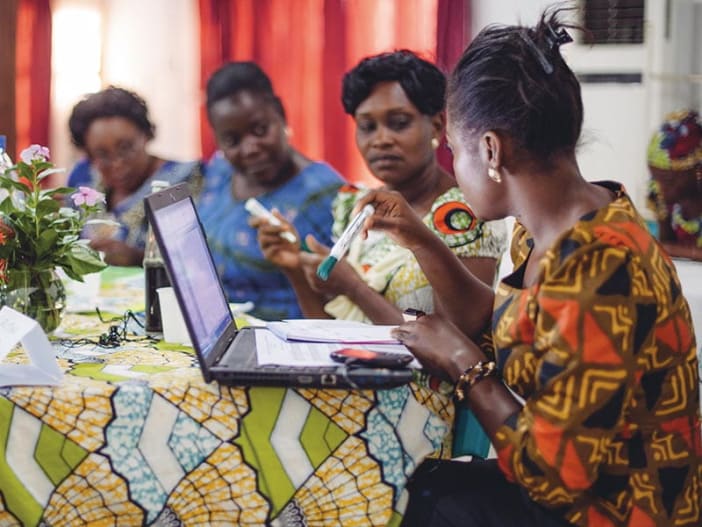Deciding whether or not to share community land with an investor is one of the most important decisions a community can make. Good investments can lead to real community development and prosperity. But bad investments may force a community into poverty, increase human rights abuses, pollute local waters and soils, block access routes, and even result in communities losing their lands completely.
Below are some tips for community facilitators, who have some knowledge of land rights, to help communities negotiate with investors.
1. Teach communities their legal rights. Many countries have national laws that require investors to consult communities before starting an investment project on community land. There are also international instruments protecting communities’ rights. (See page 13 for more information.)
2. Request Environmental, Social and Human Rights Impact Assessments. Encourage communities to request that potential investors or the government fund an independent consulting firm or group of experts to undertake an Environmental Impact Assessment (EIA), and a Human Rights or Social Impact Assessment (HRIA or SIA). These will allow communities to assess the potential impacts of the proposed investment so that they can advocate for any changes needed to the investor’s plan to reduce negative impacts.
3. Prepare communities to know what to request in exchange for the use of their lands. Facilitators should support communities to demand rental payments that reflect the value of their lands.
In addition to rental payments, possible benefits to ask for include:
- repeating payments such as a fixed share of the annual profits
- clinics, medicines, doctors and nurses
- schools, books and teachers
- electricity to all homes
- new or better roads
- telecommunications and internet provision
- jobs for a specific number of community members
- shares in the company.
Communities should make sure that if they ask for one-off benefits, such as a school or clinic, they also ask for the teachers, doctors, books, electricity and medicines necessary to make these function effectively.
4. Prepare communities to negotiate with investors. Community members should not sign any papers until they have sought the help of a lawyer to understand what the investor is asking them to sign.
Facilitators should ensure communities:
- ask the investor specific questions about his/her plans and activities
- ask for copies of any papers the investor has – eg the business plan, papers from the government etc
- make sure community leaders do not approve deals without consulting the community
- agree on a negotiation plan within the community. They should decide what is not negotiable, such as keeping waters clean, and what is negotiable, such as what benefits the investor will pay.
- consider setting up a committee to negotiate on the community’s behalf – but invite all community members to witness the negotiations
- take thorough notes of what is said at all negotiation meetings.
5. Get a good, written contract that can be enforced in a court of law. Advise the community to:
- work with a lawyer to ensure the final agreement reflects the negotiations and protects the community’s interests
- ask for as short a lease term as the investor will agree to (ideally five years) with the option to renew. This prevents the community from being trapped in 50- or 99-year contracts that are not benefiting them.
- ensure the contract clearly describes the way the investor must protect and preserve the environment.
Adapted from Namati’s Community Land Protection Facilitators Guide.









